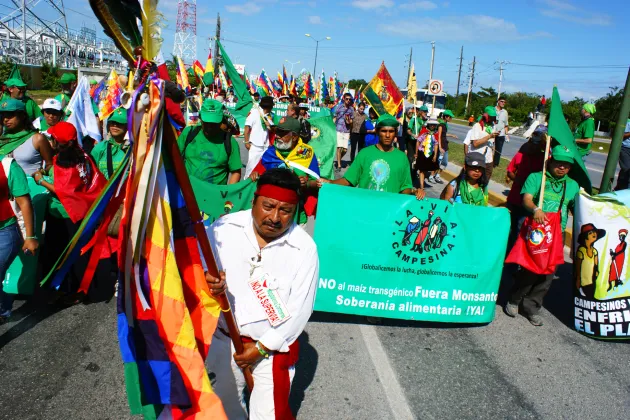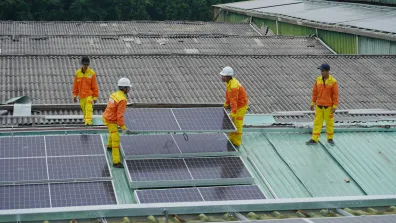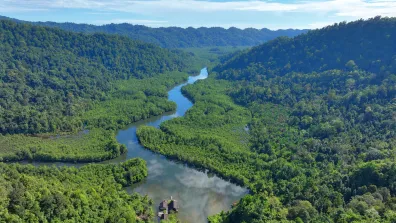Struggles and stories of resistance in North Africa and West Asia
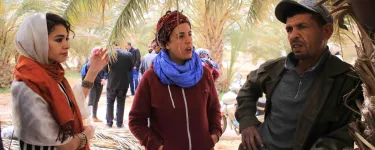
Extractivism
The NAWA region is rich in natural resources, most notably fossil fuels, which makes the area very attractive to foreign investors set on extracting those resources with little regard for the people who live there. Transnational companies operating in the region stand accused of facilitating corruption, massive environmental destruction and human rights abuses – with the complicity of Western governments.
Local groups in the region are coming together to resist these extractive industries whose operations threaten to dispossess them from their land and endanger their way of life. They have organised into networks and movements that challenge the status quo, fight for popular control over resources, and propose equitable alternatives to the current development model.
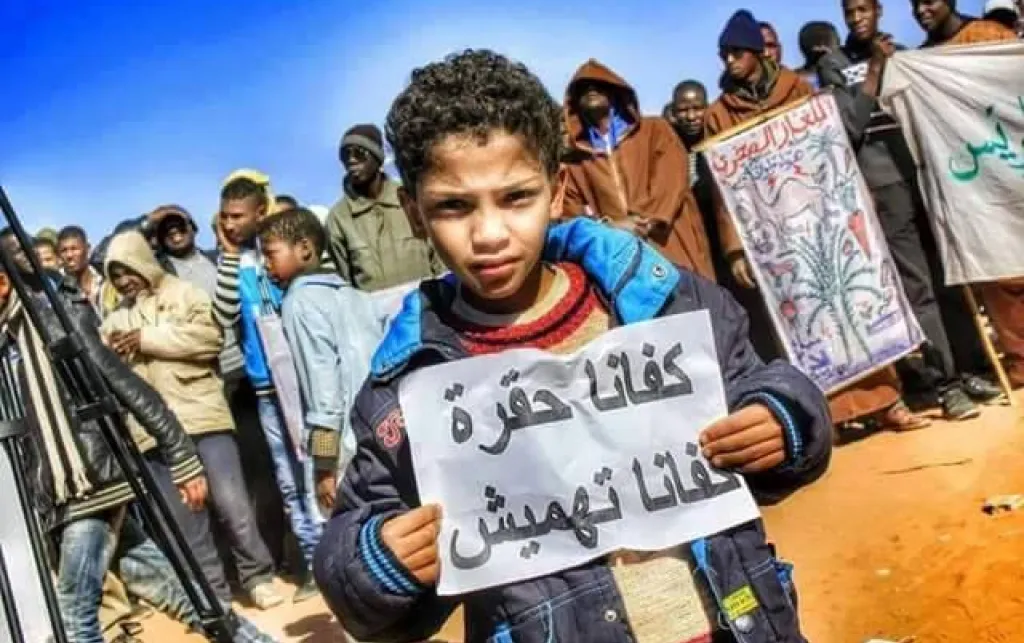
Iraq
In Iraq – which has some of the world’s largest oil reserves – Western governments and international oil companies have been ruthless in attempting to gain more control over oil by removing barriers to foreign ownership and securing the lion’s share in contracts. Given that Iraq’s economy is heavily dependent on oil, this constitutes a pillaging of Iraqi people’s wealth and a threat to their democratic control of their resources.
Western Sahara
Morocco still occupies Western Sahara (since 1975) and with the complicity of Western companies, continues to plunder the rich natural resources that belong to the Saharawi people, such as phosphate (a crucial component in fertilizers). It also uses its financial and diplomatic means to maintain its control over Western Sahara. The latest move in this insidious agenda was its readmission to the African Union after it left it in 1984 following a row over the status of Western Sahara.
Jalihena from War on Want's partner, the Saharawi Campaign Against the Plunder (SCAP) is categorical: "As long as the Moroccan monarchy continues to benefit - with impunity- from the plunder of Western Sahara's natural resources, it will not be pressured to give up the territories it occupied and will make the Saharawi efforts to liberate the territories even harder"
War on Want will continue to work alongside its partners to build their capacity to halt the resource plunder that is being undertaken by the Moroccan monarchy with multinationals and to support their struggle to end the conflict in Western Sahara.
Tunisia
Six years since the uprising, Tunisia is witnessing intense social mobilisations all over the country, especially in areas that still suffer from political and economic exclusion. Discontent has also been targeted at the fossil fuel industry. Despite a new article in the Tunisian constitution stipulating state sovereignty over natural resources, oil and gas companies continue to garner obscene profits and enjoy impunity, while local communities continue to shoulder the burden of the externalised social and environmental costs of this industry. It is in this framework that protests in Kerkennah, spring 2016 and recent protest camps in Tataouine (April 2017) should be viewed.
Wherever I went in Tunisia, I have seen young people holding protracted sit-ins, protests and occupations, halting the production of key industries (such as phosphate mining, oil and gas, etc.) and demanding jobs and an adequate local infrastructure. The state’s failure and incapacity to provide these is the result of a reckless insistence to apply the same recipe for disaster, and is one aspect of the neoliberal violence being relentlessly visited on Tunisians.
We are collaborating with our partner, l'Observatoire Tunisien de l'Economie (OTE) to carry out a project around extractivism and shale industry in South Tunisia where the British company Perenco is involved. OTE wants to focus on shale exploitation in the region of Douz in order to document its political, economic, social and environmental impacts and using this information, advocate for this resource exploitation to be stopped. In a country that suffers severe water shortages, the shale industry is even more dangerous to the already scarce water resources.
Algeria
The uprisings and the social movements (the unemployed and the anti-fracking movements) that southern Algeria witnessed in the last five years are in a way an insurrection by the victims of extractivism and its logic of accumulation by dispossessing them. The people of the Sahara suffered from decades of under-development more than any region in Algeria and observations and comparisons between cities in the north and the south reveal the extent of economic disparity between the North and South, which is very ironic given the fact that Algeria's wealth stems mainly from the Sahara, from its oil and gas.
The anti-fracking uprising that started in January 2015, followed the Algerian authorities announcement that drilling would begin in the first pilot shale well in In Salah by a consortium of three companies: Sonatrach, Total and Partex (BP and Shell expressed interest in these projects). These plans had the French authorities backing by offering diplomatic support to French companies in order to invest in the unconventional sector in their former colony Algeria while banning them from doing so on French territory, in a clear case of energy colonialism and environmental racism.
Our partner the National Coordination for the Defence of Unemployed peoples' Rights (NCDUR) participated in the anti-fracking mobilisations of 2015 and strives to work for a just redistribution of wealth.
Morocco
The Berber Imider community in south-east Morocco is a great example of resistance to extractivism. The villagers that rely on agriculture and family farming for their survival erected a six-year protest camp against the royal holding silver mine that is grabbing their water, polluting their environment and destroying their livelihood.
The protest camp (believed to be the country's longest-ever protest), holds regular general assemblies using the Agraw system, an ancient model of Amazigh democratic tribal governance, where everyone participates, men, women, children and elders without discrimination in a broader notion of community and participatory democracy.
Our partner the Amussu: Xf ubrid n 96 – Imider (Movement on the Road 96, Imider) are leading this struggle against mining and the dispossession of land that comes with it.
We also work with ATTAC-Morocco, which is very active around struggles against extractivism, for land rights and food sovereignty.
Food and land sovereignty
Large-scale agribusiness is also undermining the ability of communities to feed themselves, with multinational companies appropriating huge swathes of land in order to grow monoculture crops for export. These massive farms exhaust the land, use huge amounts of water and squeeze small-scale farmers off their land. Local people are often forced to become seasonal workers for these companies, who are known for exploiting and abusing the rights of their workers, especially women.
Tunisia
The oasis of Jemna in Southern Tunisia, a region famous for its excellent quality dates called Deglet Nour (the dates of light), has witnessed in the last few years an important and inspiring struggle around the right to their ancestral land. It took around a century for the people of Jemna to score a victory, albeit precarious for now, through occupying and working their long-confiscated land in an astonishing experience of self-management and voluntarism that emphasised the centrality of the peasant question and the right to land and other natural resources in revolutionary times. This was led by the Association for the Protection of the Oases of Jemna (APOJ).
A controversial project of agro-fuels is being promoted in Kairouan (central Tunisia) to export fuel to Europe. Not only is it grabbing land and shifting its use away from staple crops, increasing food imports and undermining food sovereignty, but it is also grabbing water in a country that suffers from absolute water poverty to grow monocultures that will be exported (or the fuel extract) to Europe, in order to increase the part of renewables in the EU energy mix. This resource grab, labelled as "energy security", and this rapacious extraction and subordination to foreign interests and dictates as well as capital accumulation are some aspects of neocolonialism.
Morocco
In Morocco, water-intensive, export-oriented mono-culture agribusiness dominates. The government’s 2008 Plan Maroc Vert (Green Morocco Plan, PMV), supported by the World Bank and setting out the country’s agricultural plan for the period between 2008–2020, aims to quintuple the value of export-oriented crops by shifting land-use away from staple cereal crops, promoting private investment in agriculture, and removing restrictions that stand in the way of private property rights. By focusing on cash crops that need a lot of water, Morocco is virtually exporting its rare water resources, exacerbating its water crisis. Moreover, agribusiness exploits its working force, especially the women who face terrible working conditions, including sexual harassment.
We are supporting our local partners in North Africa (Agro-ecology and Green Environment, AGE in Tunisia and ATTAC-Maroc) in their efforts to set up a North African network around food sovereignty in order to learn from different experiences, exchange and build knowledge, strategise and reflect together on sustainable and just alternatives.
Workers rights
Algeria, Tunisia and Morocco
The unemployed movement (National Coordination for the Defence of Unemployed peoples' Rights, NCDUR) that started in Ouargla in 2013 (85km away from Hassi Messaoud, one of the wealth poles of the country and the first energy town in Algeria where all the big oil and gas companies have offices and bases), succeeded in mobilising tens of thousands of people in huge demonstrations demanding decent jobs and protesting against economic exclusion, social injustice and the underdevelopment of their region. They continue fighting for their rights and against austerity policies that affect the popular classes.
There are two sister organisations in Morocco and Tunisia (Unions of unemployed graduates), which also fight for their socio-economic rights. War on Want is supporting their efforts to come together to coordinate their actions, especially that they are fighting the same neoliberal policies that squeeze and impoverish them.
Iraq
In Iraq, in a context of pillaging of resources and in a context of a push towards more privatisation and liberalisation of the Iraqi economy, workers and trade-unionists are mobilising to protect their rights and to fight for a fair and just labour law. The Iraqi Social Forum created recently a new initiative about workers' socio-economic rights and we are on the advisory board of the Iraqi Civil Society Solidarity Initiative (ICSSI), a network of organisations and an advocacy initiative working to build concrete links of solidarity between international civil society organizations and the growing Iraqi civil society.
